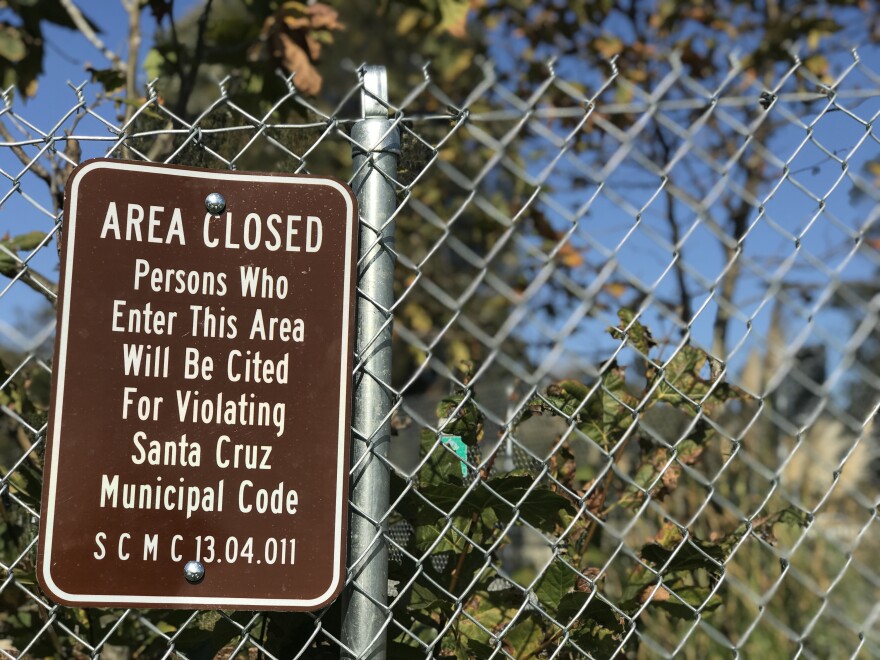UPDATE 11/27/19 3:45PM: Santa Cruz City Council decided more input from the community and CACH, or the Community Advisory Committee on Homelessness, is needed before a final decision.
During Tuesday’s city council meeting in Santa Cruz, officials will be discussing new approaches to address homelessness – through tightening their camping ordinance and possibly adding more shelter beds this winter.
Under consideration are new camping regulations, which would essentially prohibit homeless people from setting up camp during daylight hours.
Police Chief Andy Mills says this will give the city tools to deal with the community’s concerns around homeless encampments in public spaces.
“People are very concerned about the conditions that people are living in. But they're also very concerned about the conditions that they're living in that affect the greater community, the sanitation, the health, the human waste, the discarded needles, the trash, the visual appearance,” Mills said.
A first time penalty would be $20 or 3 hours of community service. Under the previous camping regulations, which were last updated nine years ago, eight hours of community service was required.
The amended camping ordinance would not cite people for camping at night if there are no open shelter beds.
The ordinance is being updated to conform to a 9th Circuit Court of Appeals ruling last year in the Martin vs. City of Boise case. The court ruled that it’s unconstitutional to punish homeless people for sleeping outside on public property if there’s no alternative shelter available for them. Since the ruling, the city’s camping ordinance has been suspended.
Alicia Kuhl feels with proposed, new rules, the city is creating more hardship for the homeless. She’s especially worried about disabled people and those who need to rest during the day. She’s also worried about bad weather.
“Instead of trying to drive all of this policy that is hurting the homeless and makes things harder for them, they need to start being more supportive and looking for solutions and ways to, you know, build people up instead of tearing them down,” Kuhl said.
Kuhl is president of the Santa Cruz chapter of the California Homeless Union. She spoke near a now empty encampment behind Gateway Plaza. Earlier this month, police cleared the camp out for a second time this year, sending dozens of homeless back to the streets, along the highway and into the woods.

Within the past two months, two homeless women have died. Deseire Quintero was crushed and killed by a tree on October 27. She was checking on a neighbor’s campsite in the woods when the tree fell on her during strong winds. On November 17, an elderly homeless woman was found dead on Cedar Street.
City officials admit the amended camping ordinance is only addressing the symptoms of a much broader problem.
“And in order to effectively deal with that, we really need more resources and more action to be taken by the county and state and federal government,” Santa Cruz City Attorney Tony Condotti said.
During Tuesday’s city council meeting, officials will also discuss the prospect of opening more shelter beds for the winter, possible at the Veterans of Foreign War Post 7263 on 7th Avenue. A letter from Santa Cruz County officials expressed support of this move. According to the latest homeless census, there are nearly 900 people living unsheltered in Santa Cruz, and about 300 in shelters.






